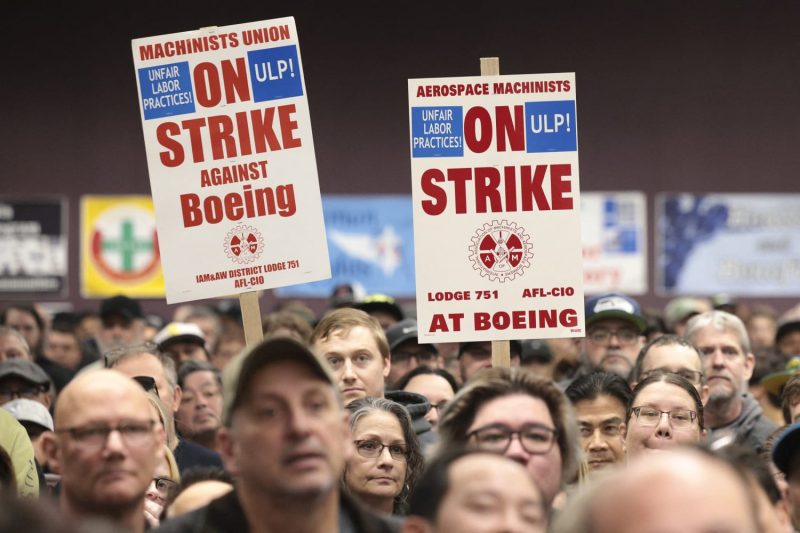In a recent turn of events, Boeing machinists have chosen to reject a new labor contract, thus extending their strike and further intensifying the ongoing labor dispute. The decision to continue the strike follows a vote conducted by the International Association of Machinists and Aerospace Workers, District 751, resulting in a majority of workers opting to decline Boeing’s proposed contract terms.
Among the primary reasons cited for the rejection of the new labor contract are concerns related to job security, healthcare benefits, wages, and retirement plans. The machinists express apprehensions about potential job cuts, outsourcing of work, and the erosion of benefits that they have fought to secure over the years.
Job security stands out as a particularly critical issue for the Boeing machinists. Amidst a rapidly changing aerospace industry and increasing competition globally, workers fear that accepting the proposed contract could jeopardize their long-term employment prospects. Outsourcing of work to external vendors or overseas facilities is a constant threat that looms over the job stability of the machinists.
Healthcare benefits and wages also feature prominently in the rejection of the labor contract. The machinists are concerned about the adequacy of healthcare coverage provided by Boeing, especially in light of rising healthcare costs and the potential impact on their families. Similarly, the issue of wages is a point of contention, with workers advocating for fair compensation that reflects their skills, experience, and contributions to the company.
Retirement plans serve as another key sticking point in the rejection of the new labor contract. Machinists are wary of any proposed changes to their retirement benefits, such as cuts to pensions or alterations to retirement age requirements. These concerns reflect the workers’ desire to maintain the financial security and stability that they have been promised as part of their employment with Boeing.
The decision to extend the strike by rejecting the new labor contract underscores the resolve of the Boeing machinists to stand firm in defense of their rights and interests. The vote signals a united front among the workers in pushing back against perceived threats to their livelihoods and well-being. As negotiations between the labor union and Boeing continue, the outcome remains uncertain, with both sides facing the challenge of finding common ground and reaching a mutually acceptable agreement.
In conclusion, the rejection of the new labor contract by Boeing machinists reflects a deep-seated concern for job security, healthcare benefits, wages, and retirement plans. The decision to extend the strike underscores the workers’ determination to uphold their rights and fight for a fair and equitable agreement with the company. Moving forward, the resolution of the labor dispute will require meaningful dialogue, compromise, and a recognition of the legitimate concerns raised by the machinists.






























